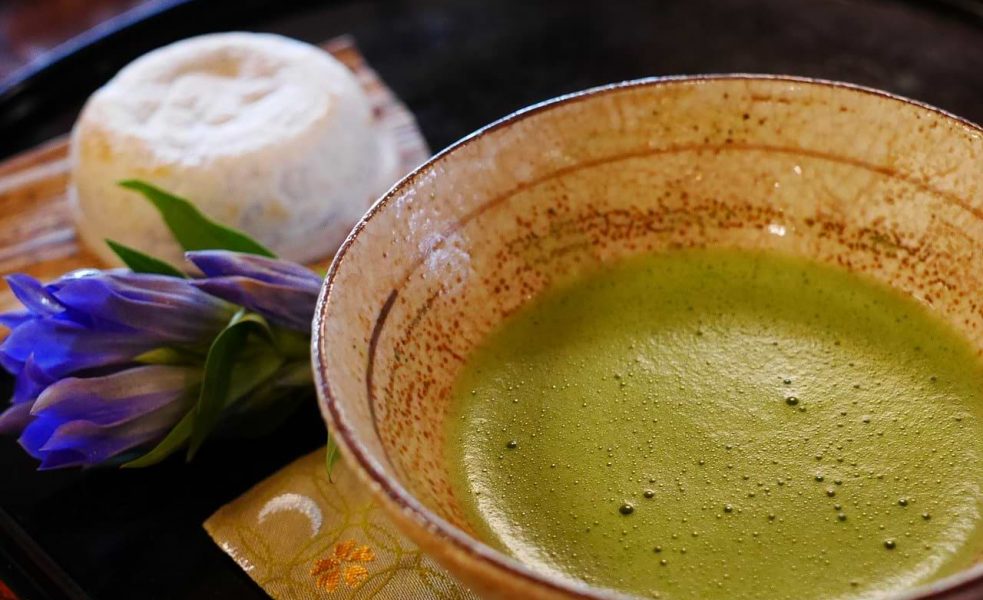Whether it’s for weight loss or overall health, a detox regimen is one of the best ways to do both. Of course, for a detox regimen to work, it has to work as a supplement to a well-rounded diet and moderate exercise (sorry, people who were looking for an easy way out!).
Treating a detox program as more of a supplement rather than as the main diet is probably one of the best ways to go about cleansing yourself of toxins. Many people new to detox make the mistake of treating detox products (like parsley detox water) as the only thing they consume. Not only is this inefficient (for both weight loss and toxin cleansing), it can also be dangerous because it deprives your body of its RDA of essential vitamins and minerals.
This is why a green tea detox is probably one of the best detox programs for newbies: it’s simple, practical, and it doesn’t have any calorie restrictions. Most green tea detox programs will clearly state that their system is only to augment a proper diet and exercise regimen. But while there’s not a lot of downsides to consuming copious amounts of these emerald drinks, many people do have some concerns.
What is a Green Tea Detox?
Basically, a green tea detox is a detox program that promotes drinking large amounts of green tea throughout the day to aid the body in flushing out and expelling harmful toxins while boosting energy levels and generally improving a person’s health.
Holistic health experts say that even just adding a few servings of green tea every day to your diet is an effective way to lose weight, enhance your immune system, clear up the skin, and just generally make a person feel healthier. In a typical green tea detox, a person is encouraged to drink around 3 to 6 cups of green tea throughout the day. Couple that with Cranberry pills (a detox favorite), and you’ll be pumping your body full of your RDA of micronutrients, vitamins, and minerals.
While a green tea detox doesn’t have calorie or food restrictions, proponents highly encourage people to follow a well-balanced and nutrient-rich diet during the detox. Light to moderate exercise is also encouraged, if not required.
For a green tea detox to work, it’s generally recommended that they continue drinking green tea for several weeks, or, better, make it a part of their lifestyle completely.
Does Green Tea Detox?
Although scientists are still hesitant to conclude whether or not detoxing is actually a thing, one thing they are certain about is that a detox program is a great way to get vitamins, minerals, and antioxidants into your system that an otherwise healthy diet might not.
So how does green tea detox? Well, it’s one of the richest sources of antioxidants you can find and it contains powerful infection-fighting compounds called epigallocatechin-3-gallate, or EGCG. This compound is a type of antioxidant that has been known (albeit inconclusively) to inhibit the growth of cancer cells in the lungs, the liver, and the prostate.
EGCG is also thought to help regulate, and even decrease, a person’s blood sugar levels, with one study finding that drinking 3 cups (or 237ml) of green tea per day for a week could potentially lower the risk of developing adult diabetes by up to 16%. If they find conclusive evidence of green tea’s blood sugar-regulating powers, it would mean that a green tea detox could effectively reduce the risk of various types of cancer, diabetes, stroke, and even heart disease.
So does green tea detox? Maybe, and scientists agree that green tea has a ton of health benefits. There isn’t a lot in green tea that’s bad for you anyway, so as long as you moderate it and back it up with proper diet and exercise, you should be fine.
Will a Green Tea Detox Diet Help Me With Weight Loss?
Detoxing with green tea also aids weight loss; at least, that’s what some studies say. Researchers believe that the catechins in EGCG further boosts the body’s metabolism, speeding it up and helping us process and burn fat for energy. Couple that with EGCG’s regulation of blood sugar, and green tea becomes an effective augment to anyone wanting to shed off some extra pounds.
However, the weight loss could just be the result of an increase in your fluid intake, an often overlooked but very crucial aspect of losing weight. In fact, one study concluded that people who drank water proportionate to their body weight and level of physical activity for a year were able to lose more visceral fat (that is, the ‘bad’ fat that surrounds your organs) than people who didn’t drink enough water, regardless of whether both groups were on a diet or on an exercise program.
That’s one of the ways a green tea detox helps you, well, detoxify: the increase in water consumption helps your body more efficiently and actively filter out toxins. Not only does this help you expel waste, but it also helps you regulate your body temperature and encourage more efficient nutrient absorption. It’s on the level of Yogi detox tea in weight loss numbers, and unlike the trendy tea, green tea is more commercially available.
So does a green tea detox diet help you with weight loss? There’s a big chance that the compounds in green tea help you burn fat faster. But even if it doesn’t, the increase in your water consumption helps a lot.
Are There Downsides to a Green Tea Detox Diet?
Yes, green tea does have a ton of benefits, but like anything else, too much of a good thing can be bad for you too. In the case of green tea, it does have a couple of drawbacks that you’ll need to consider:
Green Tea is High in Caffeine
A single 8 ounce service of green tea contains about 35mg of caffeine. It’s not as much as, say, a serving of coffee (which contains, on average, around 95mg of caffeine), or caffeinated drinks like soda, but because a green tea detox diet has you consuming around 3 to 6 cups of green tea per day, your caffeine intake piles up. If you were to drink 6 cups of green tea a day, that’s an average of 210mg of caffeine.
The problem with this is that, unlike coffee, which is known for having caffeine, not many people know that green tea has it as well. They’ll consume more caffeine through green tea because they don’t realize that it’s entering their system, which might not be that problematic if you stick to 6 cups a day (400mg of caffeine is the ‘safe’ limit for most adults), but exceed that and you might start getting caffeine jitters or anxiety.
Green Tea Can Cause Nutrient Absorption Problems
Earlier, we mentioned that green tea contains an antioxidant called EGCG. While the benefits of this compound are numerous, it does have one drawback: it likes to bind with micronutrients. This is a problem because EGCG isn’t processed by the body, which means that any micronutrients it binds to are also expelled as waste.
Studies are still being conducted to determine whether EGCG’s binding properties are serious enough to be a problem. At the moment, scientists agree that it’s not that big of a deal, but it’s still something to watch out for.



